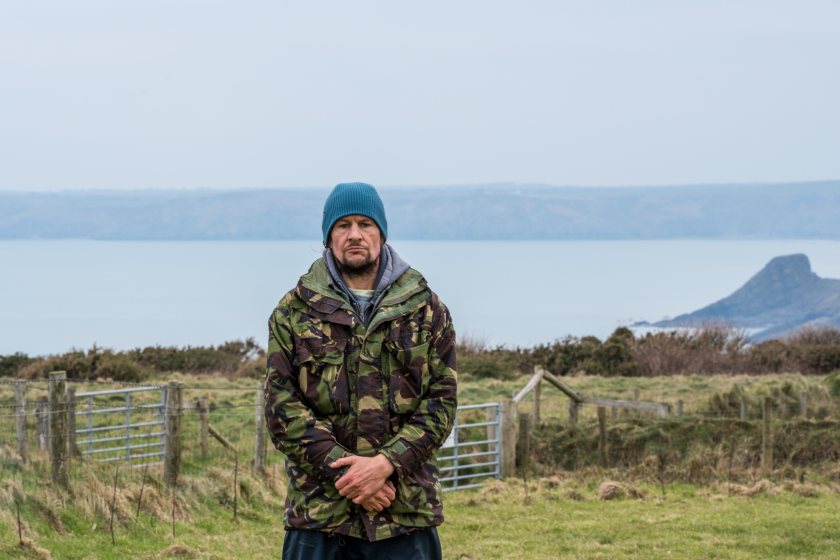
Farmers and landowners in Pembrokeshire National Park have reacted with anger and concern to plans that will ban pop-up campsites from next year.
Pembrokeshire Coast National Park Authority said it will remove permitted development rights (PDR), which legally allow landowners to run a campsite for 28 days per year without applying for extra permissions.
The move is being enacted under the Town and Country Planning Order 1995, which allows the removal of PDR to protect the character of an area.
The ban is due to come in on 1 January 2026. However, a public consultation is currently running until 21 February where people can have their say on this issue.
Farmers and landowners affected by the ban say it will impact on their livelihoods and could even force them to leave the National Park.
David Williams, who runs Clifftops Camping at Druidston in the National Park, said losing the income from the campsite might mean he has to reconsider his entire way of life.
David grew up in neighbouring Carmarthenshire on a dairy farm but relocated to the National Park 30 years ago. He now lets most of the land to a neighbour for grazing.
But in the summer he runs the campsite for the full 28-day period, which provides vital income to support his other jobs.
David said: “To take away the campsite income would be devastating. I would have to reconsider my whole life, possibly go back to full time employment and possibly move."
He added the move felt like a kneejerk reaction to the popularity of Pembrokeshire during Covid, when visitors who could not go abroad flocked to the area.
“2020 and 2021 were exceptional summers,” he said, "I’ve lived in Pembrokeshire for 30 years and those two summers were by far the busiest due to the restrictions on foreign travel and people coming out of lockdown.
“But the last two summers have been normal British summers and as a consequence, Pembrokeshire has been emptier than it’s been for 10 years. It really feels like an overreaction.”
Another campsite operator who didn’t want to be named for fear of reprisals from park officials said the move clamped down on the ability of people in the National Park to make a living.
The person said: “I live on a small farm which doesn’t make a lot of money. We set the campsite up to diversify the farm and make a bit more money.
“We wouldn’t have done it if it wasn’t for the 28-day rule because it is a big risk. You need to know it is going to work.”
The person added removing the 28-day rule would put others off from setting up legitimate campsites and would significantly impact on those who run caravan and camping sites in summer each year under the rule.
They said: “We’ve been busy, which proves there is a need for it, and we’ve had no issues, no complaints from local people and no problems with the council.
“I don’t understand what they’re trying to achieve by taking it away."
Dan Yates, founder of Pitchup.com, described the situation as a ‘kick in the teeth’ for farmers and landowners trying to scrape a living in the National Park.
He successfully campaigned to get permitted development extended in England from 28 days to 60 days last year, and has since been lobbying the Welsh government for similar changes.
The move would add millions to the Welsh rural economy, Mr Yates claims, by freeing up farmers and landowners to host thousands of extra tourists.
He said: “At a time when governments are understanding the positive impact pop-up campsites can have on the rural economy, and changing the regulations accordingly, this move by Pembrokeshire Coast National Park Authority is both draconian and completely out of step."
Mr Yates added farming is becoming increasingly difficult, particularly in Wales, and farmers are continually being encouraged to diversify.
“Many want to do that, but moves like this undermine confidence, take away choice, and leave those struggling to make ends meet angry, frustrated, and further alienated,” he said.
“This a devastating blow for those who are impacted by it, and I would urge Pembrokeshire Coast National Park Authority to reverse this decision at once.”
